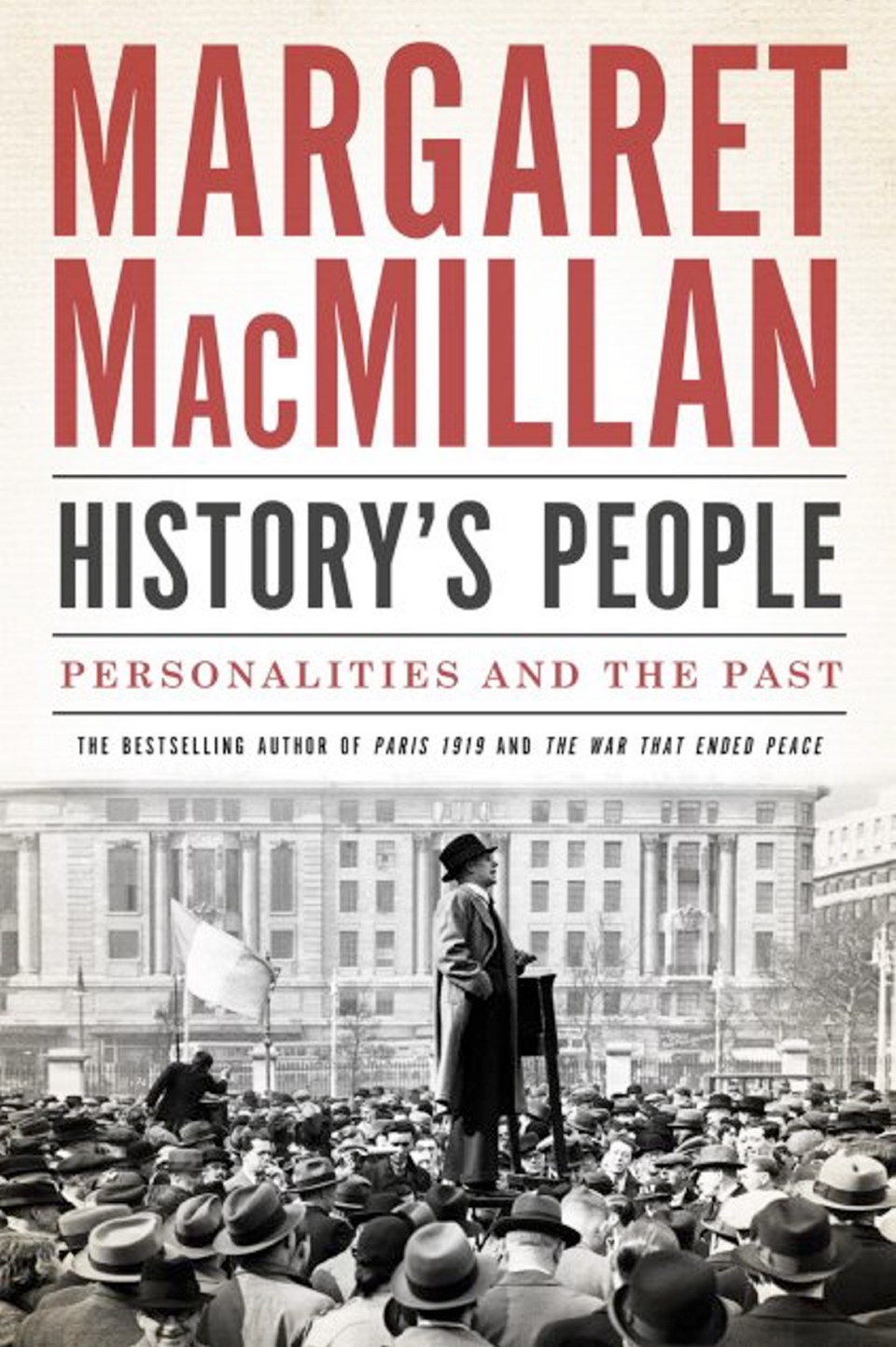History’s People: Personalities and the Past
By Margaret McMillan
Anansi, 389 pp., $24.95
One might think of this book as a biographical digest, or a summary of some of the most interesting people historian Margaret MacMillan has encountered during her years of research.
It is, however, much more. With History’s People, MacMillan helps us to understand and appreciate the strong connection between individuals and their times.
A person does not exist in isolation, after all. We can see how their environments helped individuals, the good and the evil, to achieve their goals, for better or worse.
It works both ways. As MacMillan says, to fully understand the complex topics she tackles, topics such as the First World War, she finds herself looking into the lives of individuals.
The individuals who helped to shape history would not always be considered great men or great women. Some of the key events of our times have resulted from the actions of people whose names were forgotten long ago.
We all know, for example, that Gavrilo Princip helped start the First World War when he shot Archduke Franz Ferdinand in Sarajevo. But who brought the two men together?
The archduke’s driver made a wrong turn, putting the vehicle into a narrow street. As he struggled to reverse the open touring car, Princip stepped forward, and the rest is history, as they say.
If not for that driver, it is possible that the 66,000 Canadians who died in the war would have lived for many more years. But who knows? It’s risky to pursue the “what if” question, simply because there are so many variables at play.
“It is the interplay between individuals and their worlds that makes history and brings it to life for those of us in the present,” MacMillan writes.
She stresses that history works that deal only with the most notable people are missing the mark. Their stories will not tell us, for example, what life was like for a worker or farmer in Canada in the 20th century.
MacMillan is one of the most highly regarded historians in Canada. Her works include The War that Ended Peace, Nixon in China and Paris 1919: Six Months that Changed the World.
She draws heavily from her previous books in History’s People, and some of the individuals she describes here are also found in her other work, and in some cases have been providing biographers with raw material for many decades.
They have been done to death, in other books, but MacMillan is recasting their lives with an eye to their place in the greater pictures.
Some of the other people here might be strangers to the typical reader.
Consider Victor Klemperer, a Jew who survived the Second World War in Germany, and kept a meticulous diary that gives a clear view of his life under Nazi rule.
Or curious women such as Fanny Parkes, Elizabeth Simcoe, and Edith Durham, who pushed well out of their comfort zones, lived to tell about it, and did.
The people included in this book were not necessarily perfect, and the author mentions their failures as well as their successes. The failures were usually of a personal nature; the people here had a tendency to colour outside the lines, so to speak.
Still, this book is an inspiring one, and the lives of the people included have lessons for all of us. As MacMillan writes at the close of the book, “above all, history’s people can make us aware of the possibilities for good and evil we all possess.”
Historian Margaret MacMillan will deliver a 2015 CBC Massey Lecture on Wednesday, Sept. 30 at the McPherson Playhouse in downtown Victoria.
The reviewer is editor-in-chief of the Times Colonist.



